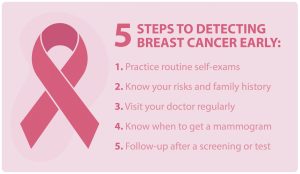
Mental Health Challenges Unique to Women and Effective Coping Strategies
Introduction
Mental health challenges affect individuals of all genders, but female-specific factors and societal expectations often contribute to unique struggles faced by women. This article aims to shed light on some of the mental health challenges that are more prevalent among women and explore effective coping strategies.
Hormonal Changes and Mood Disorders
Women experience hormonal fluctuations throughout their lives, including during puberty, menstruation, pregnancy, and menopause. These hormonal changes can have a significant impact on mood regulation, leading to an increased likelihood of mood disorders such as depression and anxiety. Recognizing the influence of hormones can help women take proactive steps towards managing their mental health.
Body Image and Self-Esteem
Societal pressures concerning body image can take a toll on women’s mental health. Media, advertising, and cultural expectations often promote unrealistic beauty standards, leading to body dissatisfaction and low self-esteem. Addressing this challenge requires promoting body positivity and embracing diverse definitions of beauty. Encouraging self-compassion and cultivating a positive body image are crucial for women’s mental well-being.
Emotional and Mental Load
Women often bear a disproportionate emotional and mental load, which can result in chronic stress, anxiety, and burnout. Balancing multiple roles such as career, caregiving, and household responsibilities can be overwhelming. Sharing responsibilities, seeking support from loved ones, and setting boundaries can help alleviate some of the emotional and mental burden women often face.
Gender-Based Violence and Trauma
Gender-based violence, including domestic violence, sexual assault, and harassment, poses significant mental health risks for women. Survivors may experience post-traumatic stress disorder (PTSD), anxiety, depression, and other psychological effects. Ensuring access to counseling, support networks, and legal resources is crucial in assisting survivors on their healing journey.
Perinatal Mental Health Challenges
Pregnancy and the postpartum period can bring about various mental health challenges for women. Hormonal changes, sleep deprivation, physical recovery, and adjusting to new responsibilities can contribute to conditions like postpartum depression and anxiety. Early identification, support groups, therapy, and self-care play a vital role in promoting maternal mental well-being.
Effective Coping Strategies
1. Seeking professional help: Consulting mental health professionals, such as therapists or counselors, provides individuals with a safe space to explore their emotions and develop effective coping mechanisms.
2. Building a support network: Surrounding oneself with understanding and empathetic individuals can offer emotional support and provide a sense of belonging.
3. Practicing self-care: Engaging in activities that promote relaxation, mindfulness, and self-compassion can help reduce stress and improve mental well-being.
4. Regular exercise: Engaging in physical activity releases endorphins and can help alleviate symptoms of depression and anxiety.
5. Educating oneself: Understanding mental health challenges and learning about effective coping strategies can empower individuals to manage their mental well-being proactively.
Conclusion
While mental health challenges are not exclusive to women, certain factors and societal expectations can contribute to unique struggles faced by women. Recognizing these challenges and implementing effective coping strategies is crucial in promoting women’s mental well-being. By prioritizing self-care, seeking support, and advocating for positive change, women can empower themselves and create a healthier and more inclusive society.

